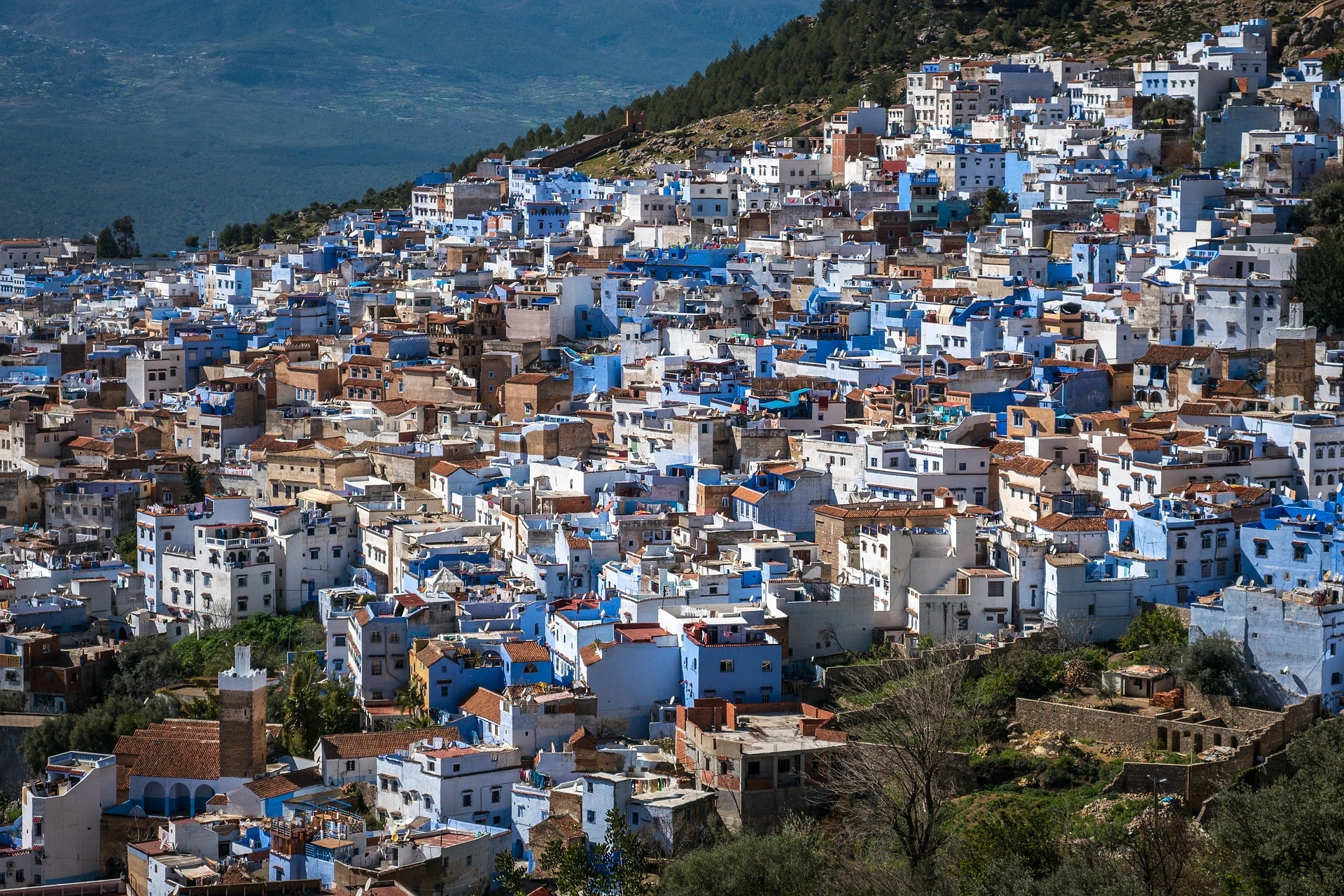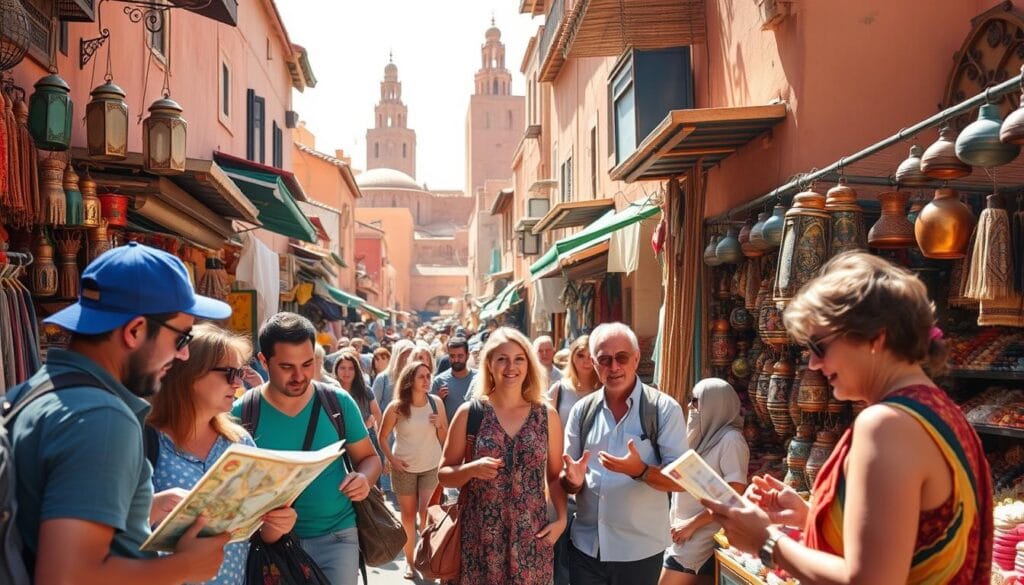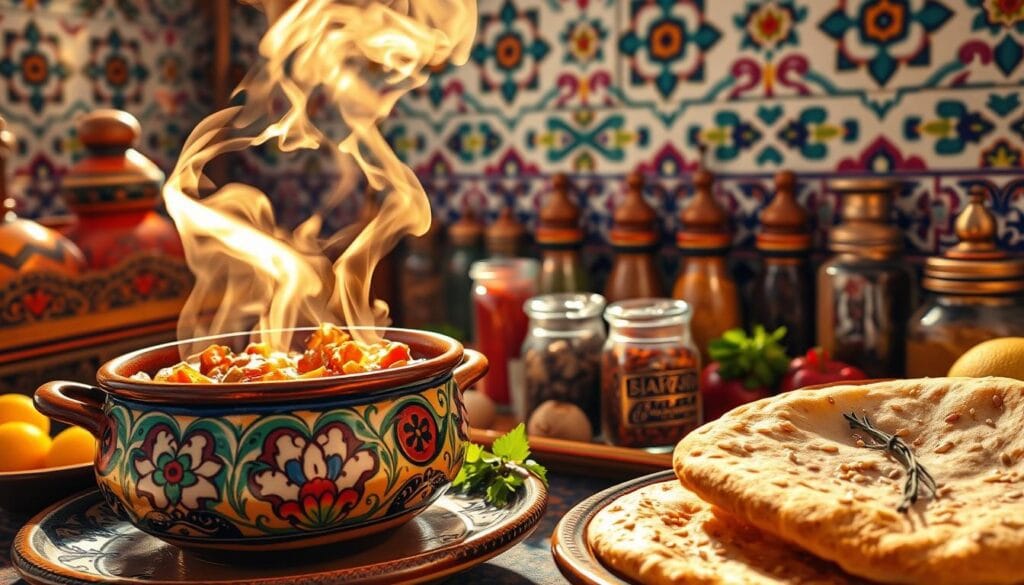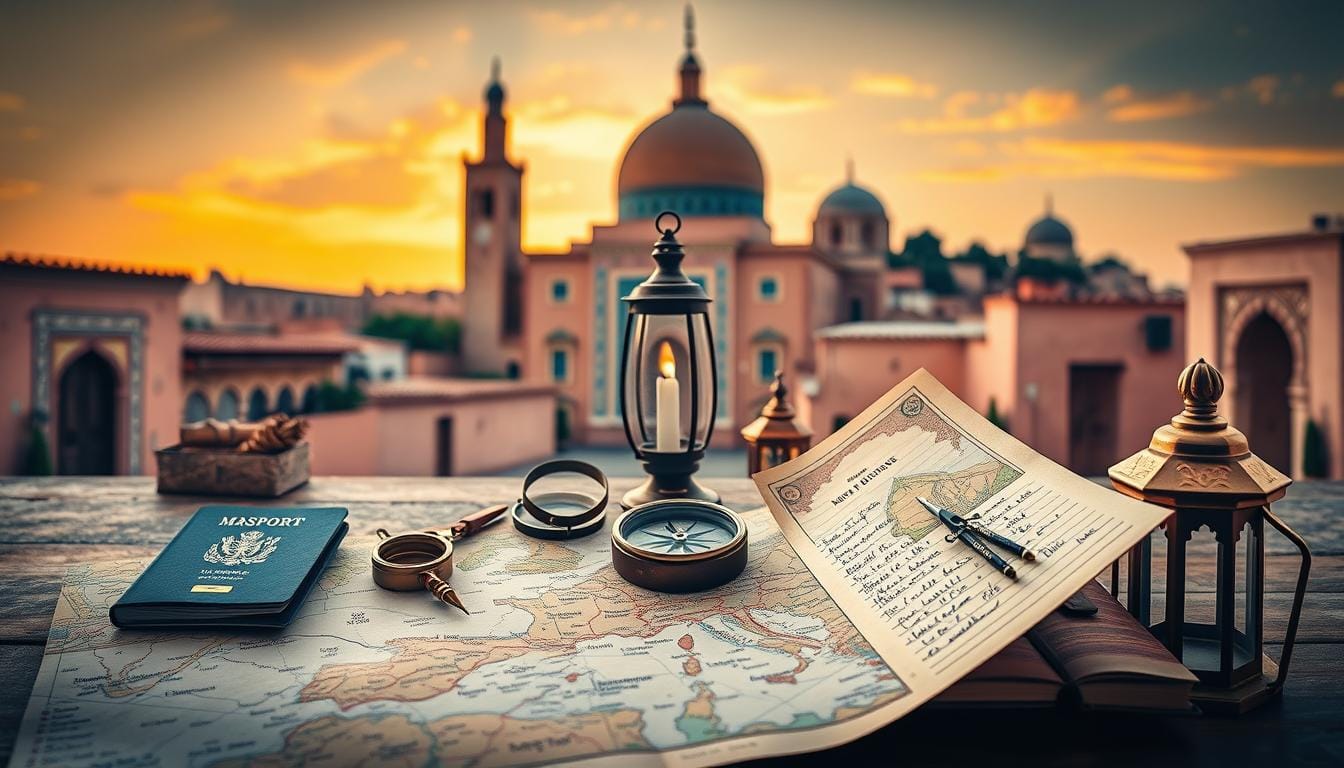How to Plan Your Morocco Travel in 2025: A Step-by-Step Guide
How to Plan Your Morocco Travel in 2025. Are you ready to immerse yourself in the vibrant culture and breathtaking landscapes of Morocco? Planning a trip to this fascinating country can be daunting, but with the right guidance, you’ll be well on your way to creating unforgettable memories.
As you prepare for your journey in 2025, consider the essential tips that will make your Morocco travel experience truly special. From researching key destinations to packing the right gear, every detail matters.
With this guide, you’ll discover the Morocco travel planning tips you need to craft an essential Morocco travel guide tailored to your preferences. Get ready to explore the bustling souks, majestic mountains, and serene deserts that make Morocco a unique destination.
Table of Contents
ToggleHow to Plan Your Morocco Travel in 2025: Key Destinations to Explore
To make the most of your Morocco travel itinerary, it’s essential to explore the country’s most significant destinations. Morocco is a treasure trove of experiences, with its vibrant cities, historical landmarks, and breathtaking natural beauty.
Marrakech: The Heart of Morocco
Marrakech is a must-visit destination when planning a trip to Morocco. This bustling city is known for its vibrant markets, stunning architecture, and rich cultural heritage. As you wander through the souks, you’ll discover a world of colorful textiles, intricate pottery, and aromatic spices.
Fes: A City of Culture and History
Fes, another significant destination in Morocco, is steeped in history and culture. The ancient medina, a UNESCO World Heritage Site, is a maze of narrow streets and alleys, lined with historic landmarks like the Al-Attarine Madrasa and the Dar Batha Museum.
The Sahara Desert: An Adventure Awaits
No trip to Morocco is complete without experiencing the majestic Sahara Desert. Whether you choose to take a camel trek, go sandboarding, or simply watch the sunset over the dunes, the Sahara offers an unforgettable adventure.
As you plan your trip to Morocco, consider the unique experiences each of these destinations offers. From the vibrant energy of Marrakech to the historical significance of Fes and the natural beauty of the Sahara, Morocco has something for every traveler.
When to Visit Morocco: Seasonal Considerations
The best time to visit Morocco depends on the regions you plan to explore and the experiences you’re looking to have. Morocco’s diverse climate means that the weather varies significantly from the north to the south and from the coastal areas to the desert.
Understanding Morocco’s Climate
Morocco’s climate is as varied as its landscapes. The coastal regions tend to have a milder climate compared to the inland areas. For instance, Marrakech can be very hot during the summer, with temperatures often reaching over 100°F (38°C), while the Atlas Mountains remain cooler, making them a great escape from the heat.
Winters can be cool, especially in the mountains, where it can even snow. The Sahara Desert, on the other hand, is known for its extreme temperature fluctuations, being very hot during the day and cold at night.

Major Festivals and Events
Morocco hosts various festivals and events throughout the year, which can be a great addition to your travel experience. Some notable events include:
- The Marrakech International Film Festival, which attracts international celebrities and film enthusiasts.
- The Essaouira Gnawa Music Festival, celebrating Gnawa culture with music and dance.
- The Imilchil Wedding Festival, a unique cultural event that is a must-see.
These events not only showcase Morocco’s rich culture but also provide a unique experience for visitors.
Best Time for Outdoor Activities
For outdoor activities like hiking in the Atlas Mountains or exploring the Sahara Desert, the best time is during the spring (March to May) or autumn (September to November). These periods offer pleasant temperatures, making it ideal for trekking, camel rides, or simply exploring the outdoors.
| Season | Weather | Activities |
|---|---|---|
| Spring (March to May) | Mild and pleasant | Hiking, exploring cities, cultural events |
| Summer (June to August) | Hot, especially inland | Beach activities, desert adventures |
| Autumn (September to November) | Comfortable temperatures | Outdoor activities, festivals |
| Winter (December to February) | Cool to cold, snow in mountains | Skiing, exploring cities, relaxation |
By considering these factors, you can plan your Morocco vacation to coincide with the activities and experiences that interest you the most, making your trip truly unforgettable.
Budgeting for Your Trip: Costs Breakdown
To make the most of your Moroccan adventure, it’s crucial to break down the costs and create a realistic budget. Understanding the expenses associated with accommodation, transportation, and daily activities will help you plan a trip that fits your financial plans.
Accommodation Options: From Hostels to Riads
Morocco offers a wide range of accommodation options to suit different budgets. You can choose from hostels, riads, hotels, and even desert camps. Hostels are the most budget-friendly, with prices starting from $10 per night. Riads, which are traditional Moroccan houses with interior gardens, offer a more luxurious experience, with prices ranging from $50 to $200 per night.
Accommodation Price Ranges:
| Type | Low Season | High Season |
|---|---|---|
| Hostel | $10-$20 | $15-$30 |
| Riad | $50-$100 | $80-$200 |
| Hotel | $30-$80 | $50-$150 |
Transportation Expenses: Getting Around Morocco
Getting around Morocco can be relatively affordable, with various transportation options available. You can use buses, trains, taxis, or rent a car. The train network is efficient and connects major cities like Marrakech, Fes, and Rabat. Bus services are also widely available and often cheaper. Taxis are another option, but make sure to agree on the fare before you start your journey.
Average Transportation Costs:
- Train ticket: $5-$20
- Bus ticket: $3-$15
- Taxi fare: $5-$10 (for short distances)
Daily Budget: What to Expect
Your daily expenses in Morocco will depend on your travel style and preferences. On average, you can expect to spend around $30-$50 per day for meals, transportation, and activities. Food is relatively cheap, with meals starting from $3. Activities like visiting historical sites or taking a guided tour can range from $10 to $50 per person.
Daily Expense Breakdown:
| Category | Low Budget | High Budget |
|---|---|---|
| Food | $3-$10 | $10-$20 |
| Transportation | $3-$5 | $5-$10 |
| Activities | $10-$20 | $20-$50 |
By understanding these costs, you can better plan your trip to Morocco and ensure that you stay within your budget. Whether you’re looking for a budget-friendly adventure or a luxurious getaway, Morocco has something to offer for everyone.
Choosing Your Travel Style: Tours vs. Independent Travel
When planning your Morocco trip, one of the key decisions you’ll make is whether to opt for a guided tour or travel independently. Morocco offers a diverse range of travel experiences, making it an ideal destination for both approaches.

Advantages of Guided Tours
Guided tours can provide a hassle-free experience, with many benefits, including:
- Local Expertise: Guides offer valuable insights into Morocco’s culture, history, and hidden gems.
- Convenience: Tours often include transportation, accommodation, and itinerary planning, making your trip less stressful.
- Safety: Traveling with a guide can enhance your safety, especially in unfamiliar areas.
Benefits of Exploring on Your Own
Independent travel, on the other hand, offers its own set of advantages:
- Flexibility: You can create your own itinerary and make changes as you see fit.
- Personalization: Independent travel allows you to explore areas that interest you the most.
- Cost-Effective: Without the costs associated with guided tours, independent travel can be more budget-friendly.
Combining Both Approaches
Many travelers find that a combination of guided tours and independent travel works best for them. For example, you might join a guided tour for certain aspects of your trip, such as exploring the Sahara Desert, and then travel independently in cities like Marrakech or Fes. This approach allows you to enjoy the benefits of both worlds.
Ultimately, the choice between guided tours and independent travel depends on your personal preferences, budget, and what you hope to get out of your Morocco travel experience.
Essential Travel Documents: What You Need
Morocco awaits, but first, let’s cover the basics: getting your travel documents in order. Ensuring you have the right paperwork will make your entry into Morocco smooth and hassle-free.
Passport and Visa Requirements
Your journey to Morocco begins with a valid passport. Ensure your passport is valid for at least six months beyond your planned departure date from Morocco. Depending on your nationality, you may also need a visa. Citizens of countries like the United States, Canada, and the EU do not need a visa for tourism stays up to 90 days. However, it’s always best to check the latest visa requirements based on your nationality before you travel.
Key Points to Check:
- Passport validity
- Visa requirements based on your nationality
- Duration of stay
Travel Insurance: Why It’s Important
Travel insurance is a vital component of your travel planning. It covers unexpected medical or travel-related expenses. For Morocco, consider a policy that includes coverage for medical emergencies, trip cancellations, and theft or loss of personal belongings.
Why it’s crucial:
- Medical coverage in case of emergencies
- Protection against trip cancellations or interruptions
- Coverage for loss or theft of belongings
Vaccinations and Health Precautions
Before traveling to Morocco, consult your healthcare provider or a travel clinic to determine the necessary vaccinations and medications. Routine vaccinations should be up to date, and additional vaccinations may be recommended based on your travel plans and health status.
Health Precautions:
- Stay hydrated and protect yourself from the sun
- Be cautious with food and water consumption
- Consider any personal health conditions
Packing Checklist: What to Bring
Packing for Morocco requires careful consideration due to its diverse climates and cultural nuances. Whether you’re exploring the bustling streets of Marrakech or trekking through the Sahara Desert, being prepared is key to a successful trip.
Clothing for Varying Climates
Morocco’s climate varies significantly from north to south and with the seasons. You’ll need to pack clothing that can adapt to these changes. Lightweight and breathable clothing is essential for the warm days, while warmer layers will be necessary for cooler evenings, especially in the desert or during the winter months.
- Comfortable walking shoes or sandals
- Lightweight pants and tops
- Warm layers for cooler evenings
- A hat and sunglasses for sun protection
- Modest clothing for visiting mosques or rural areas
Must-Have Travel Accessories
In addition to clothing, there are several travel accessories that are considered essential for a trip to Morocco. These include a reliable backpack or daypack for daily excursions, a water bottle to stay hydrated, and a universal power adapter for keeping your devices charged.
- A small first-aid kit
- Travel insurance documents
- A money belt or secure wallet
- A guidebook or map
- A portable charger for extra power on the go
Items to Leave Behind
To ensure a smooth and enjoyable trip, it’s just as important to know what to leave behind. Avoid packing valuables that you don’t need, such as expensive jewelry or large amounts of cash. It’s also a good idea to leave behind any clothing that may be considered inappropriate or revealing for Morocco’s conservative culture.
By carefully considering what to pack and what to leave behind, you’ll be well-prepared for your Moroccan adventure. Remember, the key to a successful trip is being prepared for the diverse conditions and cultural norms you’ll encounter.
Cultural Etiquette: Navigating Moroccan Customs
As you prepare for your Moroccan adventure, understanding the local customs is crucial for a respectful and enjoyable experience. Morocco is a country with a rich cultural heritage, and being aware of the cultural norms will help you navigate everyday interactions with confidence.
Understanding Moroccan Greetings
In Morocco, greetings are an essential part of the culture. When meeting locals, it’s customary to greet them with a handshake or a kiss on the cheek, depending on the level of familiarity. Moroccans often use formal greetings such as “As-salamu alaykum” (peace be upon you), to which you can respond with “Wa alaykum as-salam” (and upon you be peace). Using these greetings will be appreciated by the locals and help establish a positive connection.
Dining Etiquette: What to Know
Dining in Morocco is a significant cultural experience. When invited to share a meal, remember that Moroccans typically eat with their right hand, as eating with the left hand is considered impolite. It’s also customary to wait for the host to start eating before you begin. Try a little of everything served, as this shows appreciation for the food and the host’s generosity.
Some key dining etiquette tips include:
- Use your right hand when eating.
- Wait for the host to start eating before you begin.
- Try a variety of dishes to show appreciation.
- Be prepared for meals to be lengthy and sociable.
Dress Code Considerations
Morocco is a conservative country, and dressing modestly is advised, especially when visiting rural areas or mosques. For women, this means covering the shoulders and knees, while men should avoid wearing shorts or sleeveless shirts in public. Dressing respectfully will not only make you feel more comfortable but also show respect for the local culture.
By understanding and respecting Moroccan customs, you can enhance your travel experience and build meaningful connections with the people you meet. Whether it’s through greetings, dining etiquette, or dressing appropriately, your efforts to adapt to local norms will be appreciated and enrich your journey.
Food and Drink: Culinary Delights of Morocco
Morocco’s culinary scene is a rich tapestry of flavors and influences, waiting to be explored on your Best Morocco travel itinerary. As you plan your Morocco vacation, you’ll have the opportunity to indulge in a diverse range of traditional dishes, drinks, and street food that showcase the country’s unique cultural heritage.

Traditional Moroccan Dishes to Try
Moroccan cuisine is known for its rich flavors and aromas, with popular dishes like tagine, couscous, and pastilla. Be sure to try these traditional Moroccan dishes during your visit:
- Tagine: a slow-cooked stew named after the earthenware pot in which it’s cooked.
- Couscous: a traditional North African dish made from semolina flour, often served with vegetables and meat.
- Pastilla: a savory pie made with layers of flaky pastry, meat, and spices.
Alcohol and Beverage Options
While Morocco is an Islamic country, you’ll still find a range of beverage options available. From fresh juices to traditional mint tea, there’s something for everyone. If you’re looking for something a bit more adventurous, try a mahia, a Moroccan fruit juice made with a variety of fruits.
Street Food: A Culinary Adventure
Morocco’s street food scene is a culinary adventure waiting to happen. From sizzling skewers to crispy fried doughnuts, the street food in Morocco is both delicious and affordable. Be sure to try some of the local specialties, such as:
- Grilled meats: skewers of marinated meat, grilled to perfection.
- Msemen: a traditional Moroccan pancake, often served with honey and butter.
- Zalabia: deep-fried doughnuts, often topped with honey and sprinkles.
Safety Tips: Traveling Smart in Morocco
As you prepare for your Morocco adventure, understanding the safety landscape is crucial for a stress-free journey. Morocco is generally considered a safe country for tourists, with low crime rates compared to other popular destinations. However, being aware of your surroundings and taking necessary precautions can significantly enhance your travel experience.
Staying Safe in Urban Areas
Urban areas in Morocco, such as Marrakech and Fez, are bustling with activity, and while they are generally safe, it’s essential to remain vigilant. Be mindful of your belongings, especially in crowded markets and tourist hotspots, where pickpocketing can occur. Avoid displaying signs of wealth, such as expensive jewelry or watches, and keep your valuables secure.
Tips for Urban Safety:
- Use reputable taxi services or ride-sharing apps.
- Avoid traveling alone at night.
- Keep your hotel room door locked and secure.
Tips for Solo Travelers
Solo travel in Morocco can be a rewarding experience, offering the opportunity to meet new people and immerse yourself in the local culture. To stay safe as a solo traveler, consider joining group tours or using reputable tour operators, which can provide an added layer of security and local knowledge.
Additional Tips for Solo Travelers:
- Stay in touch with family and friends back home, keeping them updated on your itinerary.
- Be cautious when accepting invitations from strangers.
- Trust your instincts; if a situation feels uncomfortable, it’s okay to leave or say no.
Emergency Contacts and Resources
In case of an emergency, having the right contacts and resources can be invaluable. Make sure to have the contact information for your country’s embassy or consulate, as well as local emergency services.
Important Contacts:
| Service | Contact Information |
|---|---|
| Local Emergency Number | 112 or 19 |
| Tourist Police | Contact varies by city; check local listings |
By being informed and prepared, you can enjoy a safe and fulfilling trip to Morocco, taking advantage of the Essential Morocco travel guide and Ultimate Morocco travel tips to navigate this beautiful country with confidence.
Unique Experiences: Activities to Consider
As you plan your trip to Morocco, you’ll want to immerse yourself in the local culture and take advantage of the many unique experiences available. With a step-by-step Morocco travel planning approach, you can create an unforgettable journey.
Exploring local markets, known as souks, is a must-do activity. Here, you can find everything from traditional handicrafts to local spices. For adventure-seekers, the Atlas Mountains offer a range of outdoor activities, including hiking and skiing.
Relaxing in Traditional Hammams
After a long day of exploring, you can relax in a traditional hammam, or Moroccan spa. This is a great way to rejuvenate and experience local customs. By following Morocco travel planning tips, you can make the most of your trip and create lasting memories.

